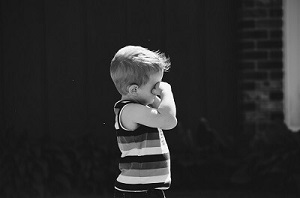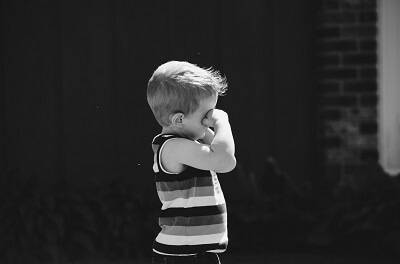Sneezing is an involuntary action that people do every day. People sneeze when there is an irritation in the nose or throat. The most common reason for sneezing is dust or dirt getting into the body. Sometimes, sneezing is a symptom of an illness or allergy. But most of the time, sneezing is simply a bodily function that happens because of environmental factors.

Like any bodily function that is out of a person’s control (such as burping and flatulence), a person says, “excuse me” after sneezing. But is there a need for anybody to say excuse me, even if it is out of their control?
A sneeze is something uncontrollable for many, but it is still an inconvenience for the people around you. It is, therefore, appropriate to say “Excuse me” if you had to sneeze. It shows that you are aware of your body’s function.
There is no historical context of why people excuse themselves after sneezing. Instead, people have come to a consensus of what “excuse me” means in this context. Generally, “excuse me” means you are excusing yourself for interrupting someone or something. Sneezes are not morally wrong that it warrants a “sorry“. The entomology of “excuse me” means that it is only a mild apology.
So that leaves us with more questions. When is it appropriate to say “excuse me“? Is there an appropriate way to sneeze? We’ll discuss each of these points right now, piece by piece. You’ll be surprised that there is a lot behind a simple sneeze.
Understand the meaning of “Excuse Me”
The etymology of excuse dates back to Latin when the word was first spelled as excusare. Excusare‘s literal translation is “to (be) free from blame“. Later, the word was adopted by the French and turned into escuser. The word was then translated into English and is now known as the word we use today.
The phrase “excuse me” and “sorry” are sometimes used interchangeably. But both of them carry different weights.
Excuse me is used in a lighter context. It’s typically associated with minuscule inconveniences rather than a major mistake.
For example, take a look at this sentence:
“Excuse me for breaking the vase.”
The word excuse me feels out of place. It sounds insincere. Meanwhile, have a look at this sentence:
“I am sorry for bumping your shoulder.”
Technically, it makes sense, but what’s so bad about accidentally bumping someone’s elbow?
The use of “excuse me” is to ask for forgiveness for minor inconveniences. Usually, these inconveniences won’t affect anybody negatively in the long run.
Is A Sneeze A Minor Inconvenience?
Disturbing an otherwise peaceful room can be annoying, but it’s only a short-term bother for most people. Sneezing is an uncontrollable activity that humans do. Anything can cause a sneeze. A tickle of the nose by dirt, an untimely allergy, and even the strong scent of any fragrance can cause a person to sneeze. So sneezing won’t cause the end of the world.
A sneeze is not completely harmless. Researches show that a single sneeze can send out more than 100,000 germs into the air. These germs can travel at a speed of 100 miles per hour when airborne. It can infect a large number of people in a short time, especially if you sneeze in a tight space.
Asides from germs, sneezing can spread viruses that can cause allergies, colds, flu, and deadlier illnesses. Sneezing can spread infectious diseases and affect those with weaker immune systems. And what’s worse is that these viruses can survive on any surface for hours after the initial sneeze.
In short, a sneeze may seem like a minor problem to a lot. However, people who are exposed to someone who sneezes can get infected by germs and viruses.
The Relation Between Sneezing and Saying “Excuse Me”
The nature of a sneeze is pretty inconsequential, even though it can spread potentially dangerous viruses. A sneeze is something uncontrollable for many. It’s also nobody’s intention to spread a pandemic with a single sneeze.
Saying “excuse me” is a polite way of apologizing for a minor disturbance like sneezing. It shows that you are aware of your body’s function.
You also don’t have the intention of spreading something dangerous to anybody. Furthermore, excusing yourself lets other people know that you might sneeze again. People will give you space in case that you might have a second or third sneezing episode.
Sneezing somewhere like in the office or on public transport can be troublesome. You have to think of the risk of you spreading a potential disease. That’s why there are ways that you can sneeze to be more courteous to others.
Sneezing Etiquettes
Letting out a sneeze isn’t in our control, but manners are something that can be.
Good etiquette means being able to control the spread of germs while keeping your sneeze as quiet as possible. There are a few steps that you can do. One step is excusing yourself.
But there are more things you can do to be a model citizen:
1. Grab a tissue
When you have the urge to sneeze, grab a tissue or a handkerchief. Place the fabric against your face and sneeze into it. If you have nothing around you, use the inside of your shirt. The germs will get trapped in whatever fabric you used to sneeze with. This will lessen the chance of viruses flying into the air.
2. Turn away
Turn away from any person when you sneeze. Keep yourself isolated from others to avoid the spread of germs. If you are in a small space like an elevator, turn your head away from others and sneeze in the opposite direction.
3. Step aside
If you can leave where you are standing, leave. It can cause a ruckus when you sneeze more than one time. If you are in class or work, excuse yourself to the bathroom. It’s also good to leave momentarily if you are in an entertainment place like a movie theater.
4. Use a trash bin
If you are using tissues, dispose of them properly. Throw them in the nearest trash bin in your vicinity. If there are no cans, put them inside your pocket or bag. It’s unethical to throw tissues in your environment, especially in a public space.
5. Never return tissues
Moreover, if someone offers you a tissue, keep it once you use it. It’s rude to give it back to them used. Plus, a used tissue can potentially spread germs and viruses.
6. Wash your hands
Wash your hands after sneezing, especially if you know you are going to meet other people. Wash your hands for 20 seconds to completely strip any viruses from your palm. A handshake or high-5 can spread germs, so you would want to keep your hands clean. This is very true if you are in a school, office, or social gathering.
7. Take actions
Lastly, if sneezing is a constant problem for you, visit your doctor. Chronic sneezing can be a sign of a health problem with your respiratory system. Take your medications to avoid sneezing constantly. Proper hygiene and a healthy lifestyle can lower the chance of you sneezing.
Sneezing is natural, but it can sometimes be annoying and even rude to other people.
Be considerate to others and do what you can to soften the blow of your sneezes. If chronic sneezing is a problem in your life, consider finding the root cause of the problem.
What to Do When Someone Else Sneezes?
We have talked about why it’s polite to say “excuse me” when sneezing. We have also dabbled into the etiquette of sneezing in public settings.
But what if you are with somebody who has sneezed? There are some steps that you can take in this situation to be courteous and polite.
1. Wish them well
Say “bless you“, “God bless you” or “Gesundheit” to the person who has sneezed. Sneezing was once linked to plenty of folk beliefs. People once believed that sneezing is a way to expel sins from the body. Others believe that the heart momentarily stops during a sneeze. These traditions have been debunked by modern science. But it’s still a tradition to say something after a person says “excuse me“.
2. Help them out
It’s also proper to offer a tissue. Hand one to a person if you notice that they don’t have one. If they are about to give the used tissue back, politely decline.
3. Avoid direct contact
Finally, in a scenario like this, it’s best to look the other way. If you are talking to someone face-to-face, turn your head when they sneeze. This is to simply avoid getting direct contact after they have sneezed.
Bottomline
Sneezing is a normal activity people do, but it can be a little bit of a nuisance. Fortunately, it is not something heinous where you need to apologize for it.
Saying “excuse me” is enough after you sneeze. This excuse is good enough for any context. It is appropriate at home, school, work, and social gatherings.
Saying excuse me is the polite way to address your body’s function without calling too much attention to yourself.
Sneezing can also spread viruses, so it’s important to follow sneezing etiquette. Do cover your mouth and nose when sneezing. It’s also appropriate to look away from others when you blow. Don’t throw your tissues all over the place. And finally, wash your hands to remove any germs from sneezing.
To conclude, if you want to be polite in social settings, say excuse me after sneezing. It is a simple way to address that you have, in fact, sneeze. It’s short, polite, and won’t disrupt any further conversations.

Katie Holmes is a senior author at everyday-courtesy.com with over 15 years of experience in marketing and psychology. As a freelance consultant, she also supports companies and executives in overcoming communication challenges. Katie is a passionate digital nomad working on her first book on the art of communication.

